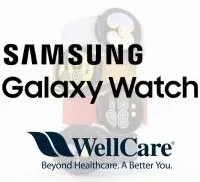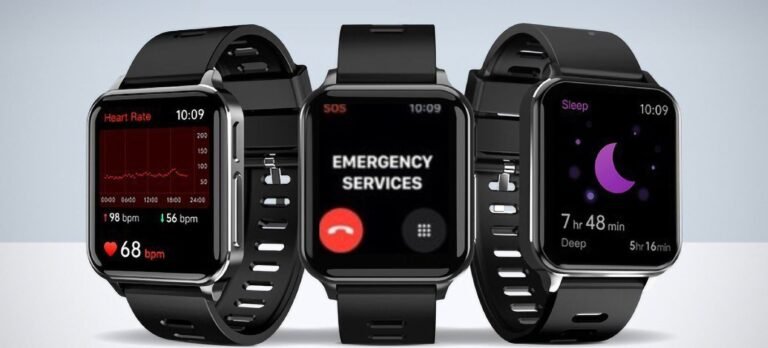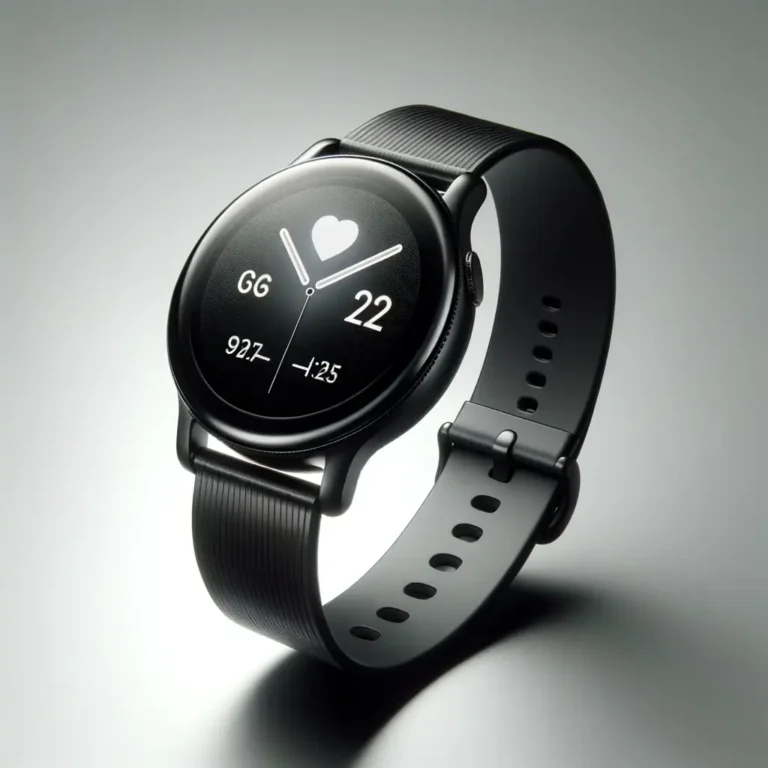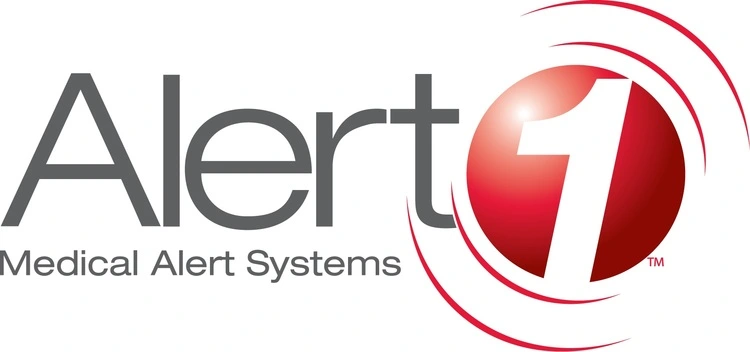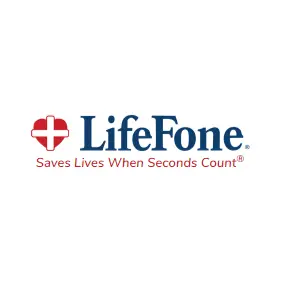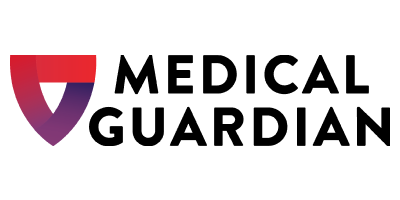Apple’s smartwatch stands out for its deep integration within its ecosystem, enabling features like Fall Detection and Emergency SOS, which are crucial for quick emergency response. Meanwhile, Samsung’s offering combines its fitness prowess with advanced health monitoring capabilities, including ECG and blood oxygen measurement, catering to those needing a comprehensive health management approach.
Apple Watch Series 9
The Apple Watch Series 9 continues Apple’s tradition of innovative technology and health-oriented features. As a leading name in the smartwatch market, Apple has designed the Series 9 to be not just an extension of your smartphone but a comprehensive health and fitness companion. It integrates seamlessly with the iOS ecosystem, offering a wide array of features that cater to both daily convenience and emergency situations.
- Advanced Health Monitoring
- Superior Fall Detection
- Emergency SOS
- Fitness Tracking
- Always-On Retina Display
- Water Resistance
The Apple Watch Series 9 stands out as the best medical alert watch of 2024 for several compelling reasons. Its advanced health monitoring capabilities, including the lifesaving potential of its fall detection and Emergency SOS features, set it apart in a market flooded with options. The integration of these features into a device that also excels in daily connectivity, fitness tracking, and personalization offers users a level of versatility and reliability unmatched by competitors. While the price point and battery life may be considerations for some, the overall value and peace of mind provided by the Apple Watch Series 9 make it an unrivaled choice for anyone looking to combine the functionalities of a smartwatch with the critical features of a medical alert system.
Samsung Galaxy Watch
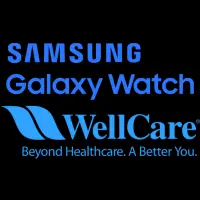
Stay ahead of your health with the Samsung Galaxy Watch 4, now featured in our comprehensive review on Wellcare Today. Explore its cutting-edge health tracking capabilities, sleek design, and advanced features that make it the ultimate companion for a healthier lifestyle.
- LTE Connectivity
- Health Monitoring
- Fall Detection
- Emergency SOS Button
- Voice Assistance
- Stylish Design
We chose the Samsung Galaxy Watch as one of the best for its comprehensive health tracking, durable design, and long battery life. Its advanced features and reliable performance make it a top choice for those seeking a versatile and high-quality smartwatch.
General Information
When assessing these devices for their effectiveness as medical alert systems, each caters to a different segment of users, particularly regarding platform preference and health feature needs.
For those already immersed in Apple’s ecosystem, the Series 9 watch offers a streamlined experience with its integration into various health apps. This ensures that emergency features like Fall Detection and SOS are reactive and proactive in safeguarding the user. This smartwatch is particularly valued for its reliability, bolstered by regular updates that enhance both its safety features and overall performance.
On the other hand, Samsung’s Galaxy Watch 4 is a formidable choice for Android users. It provides similar emergency features while excelling in more detailed health monitoring. Its advanced capabilities, like ECG and blood oxygen measurement, make it ideal for users who require in-depth health insights alongside the reassurance of emergency alerts. User feedback consistently highlights its ease of use and customization, making it a favored option for those seeking a balance of fitness tracking and health monitoring.
Technical Characteristics
The Apple Watch’s battery life, while sufficient for a full day of use, might necessitate frequent charging, particularly for those who use it extensively for health monitoring. However, its connectivity options, including Bluetooth, Wi-Fi, and optional cellular capability, ensure that users can stay connected and make emergency calls without their phones. Its lightweight design makes it comfortable for continuous wear, including overnight, which is crucial for consistent monitoring.
Conversely, the Samsung Galaxy 4 offers a longer battery life, reducing the need for daily charging—a significant convenience for users who prefer fewer interruptions. Additionally, it goes further with its advanced health monitoring capabilities. This includes fall detection and water resistance and a body composition analysis tool, providing a broader scope of health data, which is particularly beneficial for those monitoring fitness and overall health metrics.
Latest Research Insights
Recent studies, such as the one published in Sensors (2024), emphasize the accuracy and reliability of these devices in real-world conditions. The Apple Watch, for example, has demonstrated superior accuracy in step count and activity detection, which are critical for identifying potential falls or sudden changes in physical activity that might indicate a health issue. Samsung’s Galaxy Watch 4, slightly less precise in step counting, offers more comprehensive monitoring features, making it a strong contender for users needing detailed data alongside their fitness tracking.
Monitoring and Response
The Apple Watch Series 9 is well-equipped with the SOS feature, allowing users to quickly contact emergency services by holding the side button. This feature is enhanced by its ability to share the user’s location with designated emergency contacts.
The Fall Detection system is particularly notable, as it automatically senses a fall and triggers an emergency call if no response is detected from the user. Integrated into the Health App, this watch centralizes health data, making managing emergency information and alerts easier. The built-in speaker and microphone facilitate two-way communication with emergency responders, ensuring that help is clear and direct.
The Samsung Galaxy Watch 4 offers Fall Detection and Emergency SOS capabilities, ensuring users can quickly help in an emergency. The brand’s approach is deeply integrated with its own app, providing a centralized health data and alerts platform. The watch’s two-way communication feature is comparable to the other one, allowing users to communicate directly with emergency personnel.
The Galaxy Watch 4 distinguishes itself with its GPS Tracking capabilities, which benefit users who engage in outdoor activities or find themselves in unfamiliar areas. This feature ensures that emergency services can pinpoint the user’s location, adding a crucial layer of protection, especially for those active or frequently on the move.
Latest Guides
Additional Features
The Apple Watch Series 9 includes various features to improve the user experience and health management. Medication Reminders are a standout, allowing users to schedule reminders through the Health app, which is particularly useful for those managing multiple medications. The watch also supports multi-user monitoring, which is invaluable for caregivers responsible for numerous individuals.
Voice Activation via Siri offers hands-free control, making initiating emergency responses or interacting with the watch easier during an emergency. Furthermore, the device’s Multilingual Support broadens its accessibility, ensuring users can navigate its features in their preferred language.
With its additional features, the Samsung Galaxy Watch 4 caters to a wide range of health and fitness needs. Advanced Sleep Tracking monitors and analyzes sleep patterns, offering insights that can help improve overall health—a crucial factor in preventing accidents or health issues. Blood pressure monitoring and ECG capabilities provide users with detailed health metrics.
Although it lacks a built-in medication reminder feature, users can easily set reminders through third-party apps. The Body Composition Analysis feature, which assesses metrics like body fat and muscle mass, adds another layer of health monitoring, making this watch an excellent tool for users focused on fitness and overall health management.
Customer Service and Support
Customer service and support are vital considerations when choosing a health monitoring device, especially regarding ongoing maintenance and emergency service needs.
Apple is renowned for its comprehensive customer service, providing multiple avenues of support, including 24/7 online resources, in-store assistance, and phone support. The AppleCare+ service is precious, offering extended coverage, including accidental damage protection and swift device replacement options. The Returns and Refunds policy is straightforward, offering a 14-day return window. The Limited Warranty provides coverage for manufacturing defects for a year, with the possibility of an extension.
Samsung also delivers robust customer support for its products, with competitive service options. The brand offers 24/7 online and phone support and in-person service through Samsung Experience Stores. The Samsung Care+ program provides extended warranty coverage and rapid replacement services for damaged devices, ensuring users have continuous access to their health monitoring tools. The Returns and Refunds policy is customer-friendly, with a 15-day return period, and their standard Warranty covers the device for one year.
Both companies provide excellent support structures, but the choice may ultimately come down to user preference and the ecosystem they are more invested in.
Costs and Benefits
The Apple Watch Series 9 is priced at the higher end of the market, starting at around $399. While this might seem like a pricey investment, the device offers a comprehensive suite of health and safety features.
The watch’s capabilities, such as fall detection, emergency SOS, and advanced health monitoring, justify its cost, especially for users who prioritize reliability and seamless integration with their other Apple devices.
In contrast, the Samsung Galaxy Watch 4 offers a more budget-friendly option, with prices beginning around $249. Despite the lower price point, it delivers robust features typically found in more expensive devices, including ECG, blood pressure monitoring, and body composition analysis. This makes it an excellent value for those who need comprehensive health tracking without the premium price tag. The Galaxy Watch 4 offers a well-rounded experience at a competitive price for users more familiar with the Android system, making it a strong contender in the wearable market.
Latest Blog Posts
Final Thoughts
Compared to medical alert systems, the Apple Watch Series 9 and the Samsung Galaxy Watch 4 have unique strengths, catering to different user preferences and needs.
The Apple Watch offers a seamless, high-end experience with reliable health and safety features for those deeply integrated into the Apple devices. It’s an excellent choice for users who prioritize a cohesive interface, frequent software updates, and advanced emergency response capabilities.
Meanwhile, the Samsung Galaxy Watch 4 provides an impressive array of health monitoring features at a much more accessible price point. It’s particularly appealing to users within the Android OS who need comprehensive health tracking, including advanced metrics like body composition and blood pressure monitoring. The watch’s longer battery life and lower cost make it an attractive option for those who want the same functionality but at a much lower price.
Both watches excel in different areas, making them suitable for various user needs. The choice between them ultimately depends on your specific health priorities, budget, and preferred smartphone operational system.
Recommendation: If you are more used to the Apple system, choosing the Apple Watch Series 9 is better, as linking it to other devices would be much smoother. If you require a more budget-friendly option and are a dedicated Android user, consider choosing the Samsung Galaxy Watch 4.
FAQ
Can the Watches be used as medical alert devices?
Both devices can function as medical alert systems, thanks to features like Fall Detection and Emergency SOS.
Do I need an iPhone to use the Apple Watch Series 9?
Yes, this device is designed to work optimally within the Apple system, requiring an iPhone for setup and full functionality.
Can the Samsung Galaxy Watch 4 be used with an iPhone?
While the Galaxy Watch 4 can technically pair with an iPhone, it is designed for optimal use with Android devices, as some features may be limited when used with an iPhone.
How often do I need to charge these devices?
The Apple Watch Series 9 typically requires daily charging and has a life of up to 18 hours. The Samsung Galaxy Watch 4 offers a longer battery life, lasting up to 40 hours on a single charge.
Are both watches water-resistant?
Both are water-resistant, making them suitable for use in the shower or while swimming.
Do these Watches support third-party health apps?
Both watches support third-party health apps available through the respective application stores.
Which watch is better for advanced health monitoring?
Both are strong choices depending on your specific health needs, with the Apple Watch excelling in heart health monitoring and the Samsung Watch offering additional metrics.



